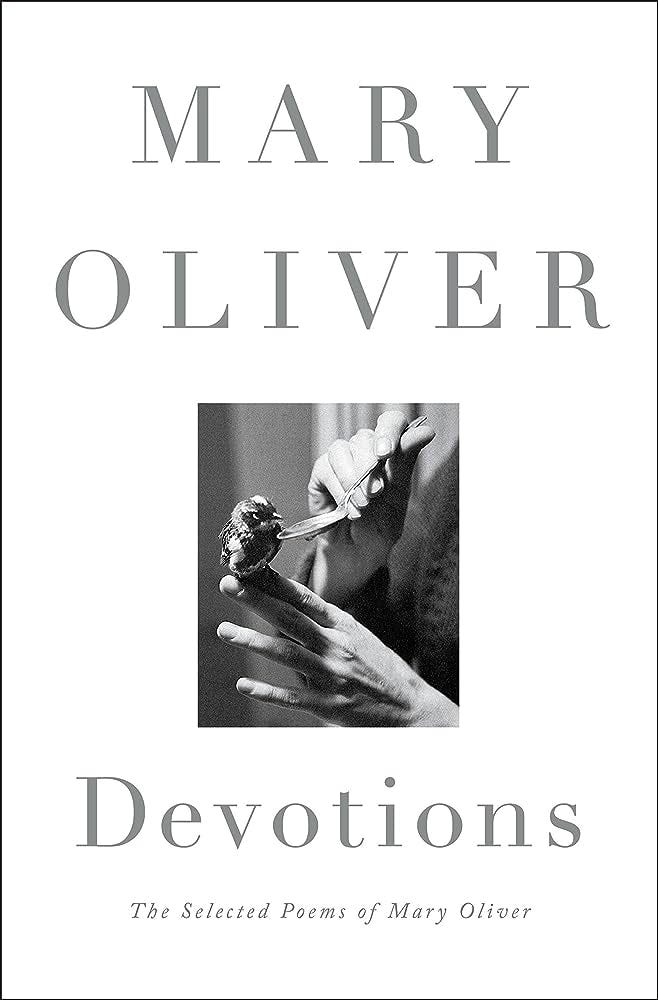This is an entry in The Good Books, the book-oriented vertical of The Post-Evangelical Post. Subscribe to keep up with all my writing.
Mary Oliver’s poetry burrows. That’s the best way I can explain its effect on the reader, tunneling inside their mind and making a home for her words.
I learned about Mary Oliver somewhere on Twitter when someone posted “Wild Geese” and it spoke to some unexpressed need that had yet to be comforted.
The first declarative line, “You do not have to be good.” is revolutionary for anyone raised with the doctrines of original sin and substitutionary atonement—regardless of where you fall on the Arminian-Calvinist spectrum, and no matter how much one believes in grace, there is a nagging guilt that you caused Christ’s suffering simply by existing. While there are other theological models that position the crucifixion and redemption differently, the spectre of that first understanding lingers like an unwanted ghost.
Here is the poem in full:
You do not have to be good. You do not have to walk on your knees for a hundred miles through the desert repenting. You only have to let the soft animal of your body love what it loves. Tell me about despair, yours, and I will tell you mine. Meanwhile the world goes on. Meanwhile the sun and the clear pebbles of the rain are moving across the landscapes, over the prairies and the deep trees, the mountains and the rivers. Meanwhile the wild geese, high in the clean blue air, are heading home again. Whoever you are, no matter how lonely, the world offers itself to your imagination, calls to you like the wild geese, harsh and exciting - over and over announcing your place in the family of things.
This entire summer, I have been wrestling with my supposed “lack of productivity” here and on my podcast, as demands closer to home make it difficult to follow or be part of any broader online discourse.
One day, I spontaneously wrote “You do not have to be online,” and recognized the cadence & word choice as Mary Oliver’s. So I followed this notion a little further, and wrote an adaptation of the first few lines of “Wild Geese,”
Echoing “Wild Geese” by Mary Oliver
You do not have to be online.
You do not have to post on your feed
more than a hundred times in the hope of engagement.
You only have to let the soft animal of your body
be where it is.
Tell me about despair, yours; I’ll tell you mine in time.
Meanwhile the world goes on.
Adaptation by Blake ChastainThe line “you only have to let the soft animal of your body” is unchanged, because what could be more comforting than those words?
One of the most salient critiques of digital media is the way it is ‘discarnate’ and can make us less aware of our bodies and direct environments. (And if this evokes an air of religiosity for you, you’re right: McLuhan’s own concern about this tendency in media was rooted in his Catholicism - I spoke with McLuhan biographer Nick Ripatrizone about this last year.)
Evangelicalism fosters an unhealthy sense of obligation, rooted not necessarily in a benevolent desire to give back or to serve, but in a sense of insurmountable debt in the form of sin-and in the cost paid by Christ in the substitutionary atonement model. I use the word “sense” here because it is nebulous, emotional, and imprecise, but ever-present nonetheless (just like a functioning physical sense). For some people, including myself, this sense of obligation transforms into guilt and shame.
Yet even as we move out of evangelical communities and practices, beliefs linger. That same emotional sense of obligation-turned-guilt-and-shame can be transferred to another sphere of life, even if it makes no logical sense.
If you are or were involved in ‘discourse’ at some point, especially if you were a terminally online Twitter or Instagram user, it can be comforting to remember: you do not have to be online.





Thank you for this reminder. Lately my morning mantra is "I am good enough." I am good enough even if no one responds to my posts. Even if no one answers the calls to join my local group in working for climate sustainability. Even if no one responds at all. I'm good enough. I love that line about our animal bodies.
This post is a healing balm. Thank you